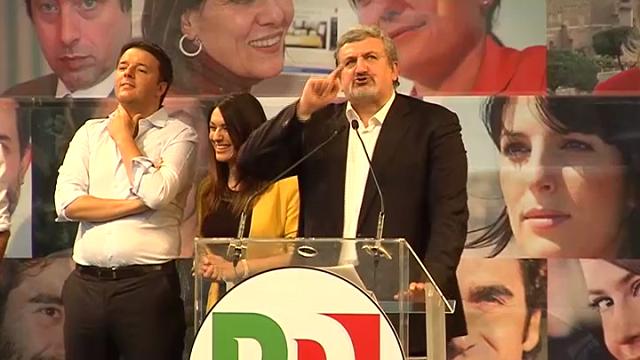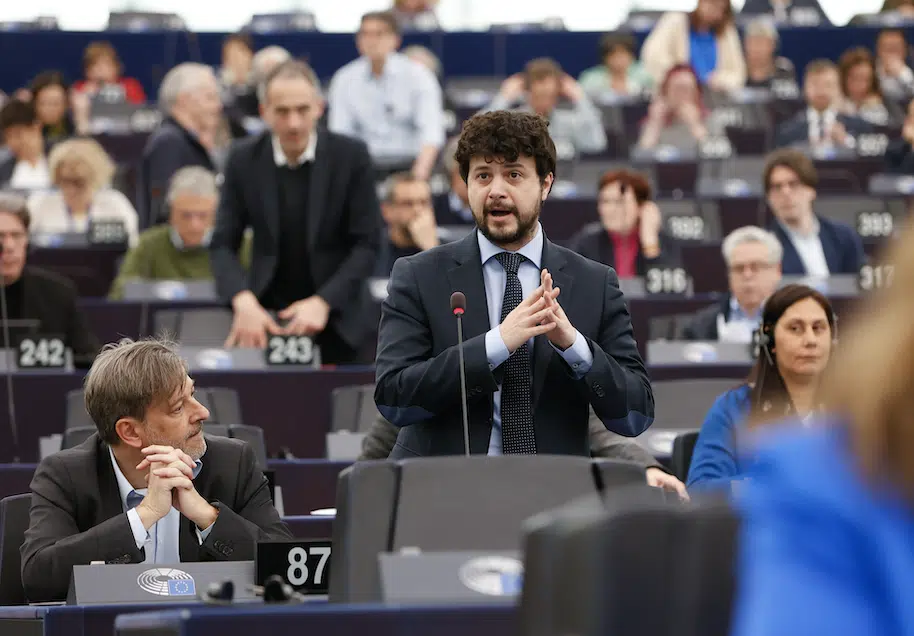Rome – The soap opera of the split in the Democratic Party is virtually over. There wasn’t the long-awaited grand finale with fireworks but, fading toward the exit, the left wing of the party represented by the historical leaders Pierluigi Bersani and Massimo D’Alema, and the new “natural leaders” Enrico Rossi and Roberto Speranza, lost the governor of the Apulia Region, Michele Emiliano, who eventually chose to stay in and challenge the outgoing secretary, Matteo Renzi, in the battle of the congress. And now, what next?
Between now and the next four months, we will celebrate the Assizes of the democratic party, where it will be very difficult for Emiliano – or even for the Minister of Justice, Andrea Orlando, in case he chooses to run for the secretary role – to succeed, especially now that the party was ‘purified’ by the opposition most hostile to the former President of the Council.
Therefore, Renzi seems to be about to maintain its leadership in a congressional campaign that will run parallel to the next administration election, which will have citizens from about one thousand Municipalities go to the polls, at a date still to be fixed between April 9 and May 14. This all, with another looming deadline in the same period: the end of April, when the government will have to launch a €3.4 billion corrective law requested by the EU Commission which, in early May, will decide whether or not to open an infringement procedure for excessive economic imbalances.
The outgoing secretary of the Democratic Party, currently the majority party, has already made it clear he does not want to hear about an increase in the tax burden to satisfy Brussels, while the Minister for Economy, Pier Carlo Padoan – in his letter to Commissioners Valdis Dombrovskis and Pierre Moscovici – had promised that the correction will be based for three-quarters on new revenues, including those resulting from measures on indirect taxes.
It looks very likely, then, that the corrective action would be the ground on which Renzi could pull the plug on Gentiloni’s government and go to early elections. The alternative would be to impose the executive a law aiming at privatizations and spending cuts only, but this still would cause an unrest difficult to manage on the eve of an administrative election.
Challenging the EU and bringing down the government in order to avoid austerity measures, Renzi would instead challenge the Northern League and the 5-Star Movement on their own field. Then, if he can fix the date of political election before September 16, he would prevent parliamentary annuities from being activated for Members of the Parliament at their first mandate, removing an additional argument from the so-called “populists.”
It is hard to say whether this will be enough for the former Prime Minister to return to Palazzo Chigi. Especially because it is not yet certain what electoral law will be used for voting. A return to a proportional representation system, given the current balance of the Parliament, seems almost inevitable. In this case, coalitions will be necessary to form the next executive.
It is difficult to think that the microcosm of little formation on the left of the Democratic Party – from newly born Italian Left to the new subject created by D’Alema, Bersani, Rossi and Speranza, through Possibile of the other former member of the Democratic Party, Pippo Civati, up to the various communist parties currently out of the Parliament – could be able to conquer enough consent to make a majority with the Democratic Party, with an axis moved to the left.
It is equally difficult for those forces on the left of the Democratic Party to accept a broader coalition with the forces of the centre, with a shift too far on the right which would replicate the problems for which the left of the Democratic Party chose to split.
There is still the possibility of a grand coalition ranging from the Democratic Party to Forza Italia. Such an alliance, of course, couldn’t be formed before the vote, but would be the result of a “national responsibility” approach to be adopted after an unclear result from the polls, as it happened with the majority supporting the Letta’s government after the “non-victory” of the Democratic Party led by Bersani.
Still, there’s a serious chance that even a coalition ranging from the Democratic Party to Forza Italy could fail to obtain a majority at the Parliament. Excluding that the 5-Star Movement, with the issues that continue to arrive from the front of Rome, could be able to get a majority on its own, a new hypothesis that many are afraid of, and that is softly whispered in the corridors of the palaces of power: the next government could be led by a Northern League – 5-Star Movement.
The movement of Beppe Grillo has always claimed that they do not to want to make alliances. However, in the course of time it has proven a certain elasticity of its limits, which can be adapted to the needs of the moment. If you add that on many issues, from the relations with the European Union to the management of migrants, the positions of Grillo and Salvini are not so far apart, and the marriage doesn’t seem completely impossible. This would break down the last bank that so far has made our country enough protected from the rise to power of populist movements, e.g. the fact that popular discontent with the establishment would have been drawn by two leaders, Grillo and Salvini, instead of just one as in the USA with Donald Trump or in France with Marine Le Pen.




![palazzo chigi [foto: archivio]](https://www.eunews.it/wp-content/uploads/2016/07/palazzo-chigi.jpg)








